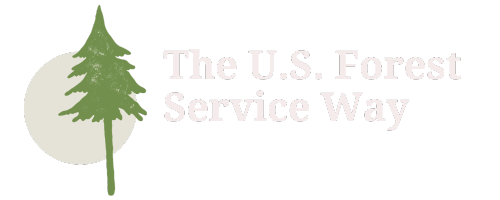“Leadership is not a person or a position. It is a complex moral relationship between people, based on trust, obligation, commitment, emotion, and a shared vision of the good.”
Piyushi Dhir
This is an expression Gifford Pinchot uses in Breaking New Ground, “the milk in the coconut.” To find what is inside that hard shell it must be broken.
During my tenure at Grey Towers, I had the privilege of listening to over 100 Forest Supervisors talk to each other about their work. The four-day seminars consisted of a dinner on Monday night, discussions from Tuesday through Thursday, and travel home on Friday. It does not seem like a long period, but most groups continued to meet once a year until the group dwindled down to too few people. Sometimes, based on the interest of the participants, we would suggest two groups to join and form a new group. It was a testament to how much they were getting out of the meetings.
Our guess was it was important for Forest Supervisors to have time to talk to fellow Forest Supervisors in the confidence of a unique and meaningful historic setting. I had learned that when Forest Service people came to Grey Towers, it was a transformative experience. It was a form of group therapy.
As the program matured, we listened to the needs of the participants. As a result, we added other sessions. One issue was the relationship between Forest Supervisors and Deputy Forest Supervisors. It was a critical relationship for two primary reasons 1) Deputy positions were to prepare people to become Forest Supervisors, and 2) this relationship needed to function well for leadership in the management of the National Forests to work.
Trust is essential to leadership. Leaders need followers. Trust is improved by learning to “listen.” Not to just understand what the other is saying, but to let the other person know you’ve heard them. They are different things. It is called empathetic listening, and it is what therapists do for clients to build trust. It is not a secret process, and it can be learned and improved. I had such fun participating in the listening workshops. Old school supervisors would respond in a role-playing exercise by saying, “I understand.” No, that does not cut it. You may have heard what they said, but you need to make sure the other knows you listened to them.
A word about what Heifetz terms disruptors and how essential they are in organizations. Disrupters push the organization to the edge, but not over it. It is dangerous role in institutions. However, the Forest Service has had a very long tradition of having what most of us thought of as “characters” who were disruptors. All kinds from geniuses with borderline personality disorders to impulsive “truth speakers” blurting out things at the wrong time. The architype was Raphael Zon, the father of Forest Service Research, and a proclaimed socialist. My guess is the agency still has plenty of disruptors. These are my favorite people, but to be truthful, I never intentionally picked one for a job. But we need them so much. I preferred boring and competent. I was disrupter enough.
